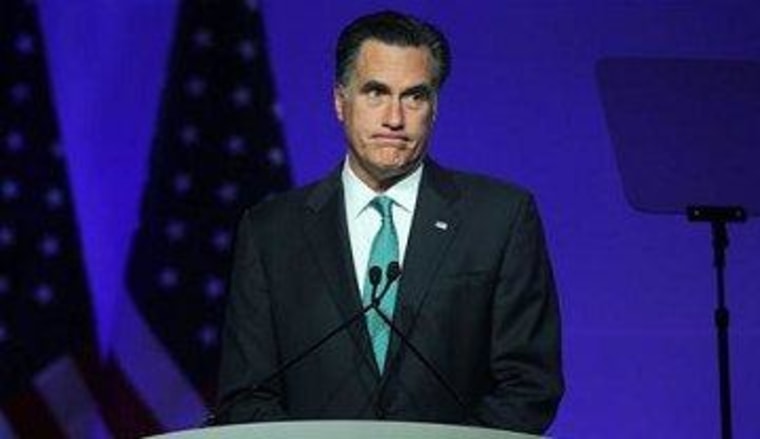For those of us who've marveled for months at Mitt Romney's reluctance to take firm positions on major issues, it's heartening to see so many others start to notice the same problem.
Politico reported this week, "Vague, general or downright evasive policy prescriptions on some of the most important issues facing the country are becoming the rule for Romney." msnbc's own Joe Scarborough told viewers this week the Romney campaign's "goal is to not let people know what he believes on one issue after another." Chris Cillizza noted yesterday that Romney "continues to decline to outline specific policies or take firm positions," adding, "How sustainable is this?"
Today, the Boston Globe's Scot Lehigh highlighted the same problem.
When Mitt Romney ran for governor in 2002, he campaigned like the management consultant he had once been, digging deep into issues and proposing thoughtful plans based on his analysis of the facts. It was a winning performance.A decade later, however, it's as if an anti-matter Mitt is running for president. This Romney takes regular refuge in vague answers and foggy formulations. And not just on caught-by-surprise matters such as President Obama's new policy not to deport certain young illegal immigrants.Rather, the vagueness extends to the heart of the Republican candidate's core proposals.
There's a running list of issues Romney is afraid to take a firm position on, and it keeps getting longer.
The next question, of course, is why Romney does this.
The candidate has already admitted that if he talks in detail about what he'd do if elected, voters might not like it, so he prefers to keep the specifics under wraps. The GOP nominee, in other words, is taking the coward's way out.
But Jonathan Bernstein goes a step further, citing Romney's "fear of conservatives" and similarities to Bush as driving factors.
[W]hile most voters may think of Bush as a typical conservative Republican, many Tea Partiers and other conservative activists see Bush as one step (if that) removed from the dreaded RINO label. And so for Romney, who still must worry about keeping activists happy, there's no way to square the circle. If Bush was dangerously moderate, then deviating even a bit to the center would put Romney in dangerous territory for activists. But of course a move to the right to separate himself from Bush, and Romney would be courting a reputation for extremism that could be trouble for him with swing voters.
Whatever the motivation, the larger truth is that there's an element of fear that permeates Romney's entire campaign -- he's afraid take firm position on issues; he's afraid to offend conservatives; he's afraid to pushback against extremist rhetoric; he's afraid of the religious right; he's afraid of Rush Limbaugh; he's afraid to release his tax returns; he's afraid to disclose his bundlers; and in general, he's afraid to lead.
Postscript: I'd be remiss if I neglected to mention Romney's ironic campaign rhetoric: "Unlike President Obama, you don't have to wait until after the election to find out what I believe in -- or what my plans are." The exact opposite is true.
